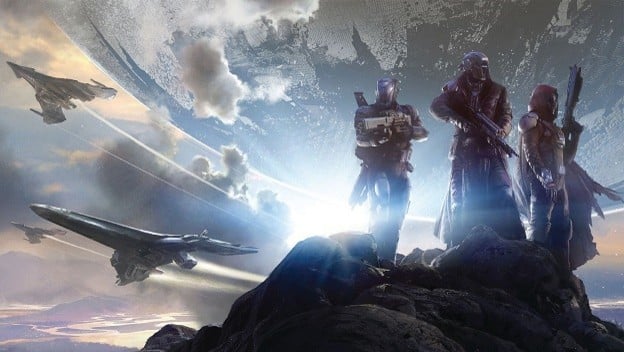If a video game is advertised or designed to be story driven, the story of the game shouldn’t be shoehorned in. For many gamers, the narrative is what what attracts them to a title in the first place, and entire communities will spring up to talk about the world of a game for years after its release. But when a game’s story fails to satisfy, who is to blame? The simplest conclusion would be that the writers are at fault, but as the size and scope of games continue to grow, an increasing amount of creative control is pried from their capable hands. Perhaps, then, the nature of the AAA publishing beast is to blame.
Rhianna Pratchett is an experienced writer who, in addition to her work as lead writer on Tomb Raider , has contributed to the book, Professional Techniques for Video Game Writing . She has gone on record expressing the restrictive nature of larger projects. In an interview with Polygon, she lamented the inability to control the game’s narrative the way she would like to saying, “I want to push, I want to explore new ways of storytelling. I would like to be involved in the smaller indie games again, like Overlord … [but] in games I’m not getting as much space to stretch myself, and the bigger the game, the less space…because there’s so much money involved. Everyone has their say.” Despite this, Tomb Raider managed to tell a compelling story, but one wonders what could have been were the writers given more control. Sometimes, things go less smoothly, as was the case for Bungie’s lead writer, Joe Staten.
Destiny was a game that was supposed to have an epic, engrossing story mode. However, last minute changes to the game’s design and the advent of the campaign’s “director mode” saw the team making big sacrifices in terms of plot. When Joe brought the supercut of the game, featuring all the major cutscenes and plot points, to the studio’s leadership, he was told that the story was far too linear. As a result, the whole thing had to be rewritten and pigeonholed into a more open ended, ambiguous format. This left many consumers so unsatisfied that they went back to old trailers to see what went wrong. What they discovered was that entire characters and settings had gone missing. All is not hopeless, though.
Some developers are trying to reign in their focus on storytelling to avoid upsetting a portion of their fanbase. Part of the problem seems to be in the mismanagement of resources, an issue Ubisoft sought to remedy with this year’s release of Assassin’s Creed: Syndicate . For years, the game had offered a multiplayer mode that, while unique, was far from the primary reason the game’s fans kept coming back. While they knew that some would be upset to see the multiplayer mode cut from the game, it seemed that a more enticing campaign would more than make up for the lack of competitive online functionality. In a series that has seen yearly iterations and has been slowly losing its appeal, this decision seemed to pay off and helped to revitalize the franchise.

Money and size of team hasn’t always been the problem, though. In the retro era, teams were considerably smaller, consisting of a handful of core members. Stories weren’t always good then, either. The industry seemed to be having growing pains as developers tried to figure out how to write for this new medium. In a majority of the cases, the stories weren’t even penned by career writers. Is it possible that this set the bar low, and we’re just starting to push what story can do? Are things progressing more slowly than they should? I can’t help but feel that we missed a bit of a sweet spot and developers should have been focusing on refining storytelling at least a decade ago.
In the current state of games, big studios aren’t able to take as many risks. Writers like Rhianna Pratchett aren’t able to “stretch” themselves. Perhaps, then, studios should have been experimenting with storytelling structures a while ago, before so much money was at stake. Now that the industry has ballooned outwards, developers seem to be dealing with a handicap that wasn’t always present. It’s possible that they don’t need to make too many adjustments, since story isn’t important to an overwhelming majority. It’s possible that the indie crowd may be tasked with satisfying the needs of those who hunger for story. Whatever the case may be, one thing is clear: when it comes to writing in video games, we are at a place where we, somehow, can’t even blame the writers and that seems indicative of a larger problem in the industry.
